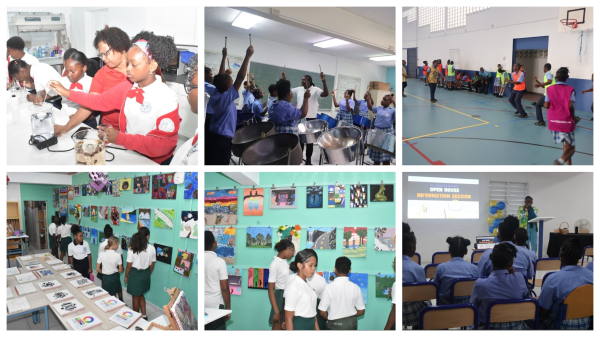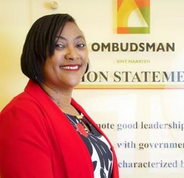 PHILIPSBURG:--- The 46th edition of the Sint Maarten Heineken Regatta is scheduled to commence on March 5th and conclude on March 8th. This popular annual event is celebrated for its exceptional sailing competition and unforgettable parties. A key collaborator in these efforts is the Dutch Caribbean Coast Guard, which dedicates its resources to maintaining safety and order on the waters throughout the event.
PHILIPSBURG:--- The 46th edition of the Sint Maarten Heineken Regatta is scheduled to commence on March 5th and conclude on March 8th. This popular annual event is celebrated for its exceptional sailing competition and unforgettable parties. A key collaborator in these efforts is the Dutch Caribbean Coast Guard, which dedicates its resources to maintaining safety and order on the waters throughout the event.
Annually, the Coast Guard integrates the event into its operational calendar, enabling the strategic allocation of additional personnel training and the acquisition of supplementary equipment tailored to meet the regatta's demands. This proactive approach ensures the event not only runs smoothly but also upholds the highest standards of safety and security for all participants and spectators. The Coast Guard will be patrolling with the Metal Sharks, the Poema Cutter, and other units to ensure safety at sea during the regatta.
The Coast Guard is conducting vigilant patrols to address any safety-related challenges and ensure the security of all participants engaged in sailing activities. In a concerted effort with the St. Maarten Police Force, Dutch Marines, Customs, and Immigration departments, the Coast Guard will extend its patrol operations across our territorial waters to enhance safety measures.
Safety at sea is our highest priority, and we would like to share some important guidelines for everyone participating in the sailing event:
· Each vessel is required to be equipped with a sufficient number of life vests, ensuring one for every person onboard.
· The boat documentation must be complied with, specifically the stipulated maximum capacity of individuals allowed onboard, which must not be exceeded under any circumstances.
· Captains are mandated to have a fully charged cellular phone or a functional vhf radio, in addition to GPS equipment, on board at all times.
It is imperative for boat captains or the vessel's agent to report to the Immigration office for clearance upon departure or arrival in Sint Maarten.
· It is a requirement for all persons onboard to have their identification papers (ID/passport). Boat documentation should also be up-to-date, present and
accessible.
· When traveling in a dinghy to and from the various activities after sunset, it is mandatory to have a light operational on the vessel. This requirement is essential
for ensuring your visibility to other watercraft and for navigating safely in low-light conditions. Adhering to this rule helps prevent collisions and ensures the safety of
all individuals on the water.
· Public intoxication is strictly prohibited by law, encompassing both sailing and operating a vessel at night. This regulation will be enforced to mitigate the risk of
accidents and ensure the safety of all individuals participating in or attending the events.
The Coast Guard wishes all sailors a safe and successful Sint Maarten Heineken Regatta 2026!






 CUL DE SAC:--- Under the inspiring theme, "Empowered to Excel—United to Overcome," St. Maarten Academy successfully hosted its highly anticipated Open House on Tuesday, March 3, 2026, welcoming ten elementary and one high school for an immersive look at the institution’s premier offerings. The event served as a powerful demonstration of the Academy’s resilient spirit and its unwavering commitment to "Excellence in Education."
CUL DE SAC:--- Under the inspiring theme, "Empowered to Excel—United to Overcome," St. Maarten Academy successfully hosted its highly anticipated Open House on Tuesday, March 3, 2026, welcoming ten elementary and one high school for an immersive look at the institution’s premier offerings. The event served as a powerful demonstration of the Academy’s resilient spirit and its unwavering commitment to "Excellence in Education." PHILIPSBURG:--- The Ombudsman has launched a systemic investigation into the administrative practices of Social and Health Insurance (SZV), following a complaint involving the suspension of medical treatment abroad, the forced repatriation of an insured person, and the imposition of financial consequences without a formal written administrative decision. The investigation has been launched by the functionally responsible government body, the Minister of VSA. This escalation to the level of the Minister follows SZV's lack of cooperation with the Ombudsman's queries, not only regarding the case but also its laws and policies.
PHILIPSBURG:--- The Ombudsman has launched a systemic investigation into the administrative practices of Social and Health Insurance (SZV), following a complaint involving the suspension of medical treatment abroad, the forced repatriation of an insured person, and the imposition of financial consequences without a formal written administrative decision. The investigation has been launched by the functionally responsible government body, the Minister of VSA. This escalation to the level of the Minister follows SZV's lack of cooperation with the Ombudsman's queries, not only regarding the case but also its laws and policies. PHILIPSBURG:--- The Sint Maarten Tax Administration, in collaboration with Community Development, Family & Humanitarian Affairs (CDFHA), is pleased to announce the launch of the annual Senior Tax Assistance Program for the 2025 tax filing period, beginning March 9, 2026. The program offers seniors and pensioners free assistance with completing and submitting their Income Tax Forms and is open to those earning a maximum annual income of Cg. 18,000.
PHILIPSBURG:--- The Sint Maarten Tax Administration, in collaboration with Community Development, Family & Humanitarian Affairs (CDFHA), is pleased to announce the launch of the annual Senior Tax Assistance Program for the 2025 tax filing period, beginning March 9, 2026. The program offers seniors and pensioners free assistance with completing and submitting their Income Tax Forms and is open to those earning a maximum annual income of Cg. 18,000. PHILIPSBURG:--- In light of recent public statements and the public concern that has followed, I wish to provide clarity regarding the construction of the new building of the St. Maarten Medical Center (SMMC).
PHILIPSBURG:--- In light of recent public statements and the public concern that has followed, I wish to provide clarity regarding the construction of the new building of the St. Maarten Medical Center (SMMC).




